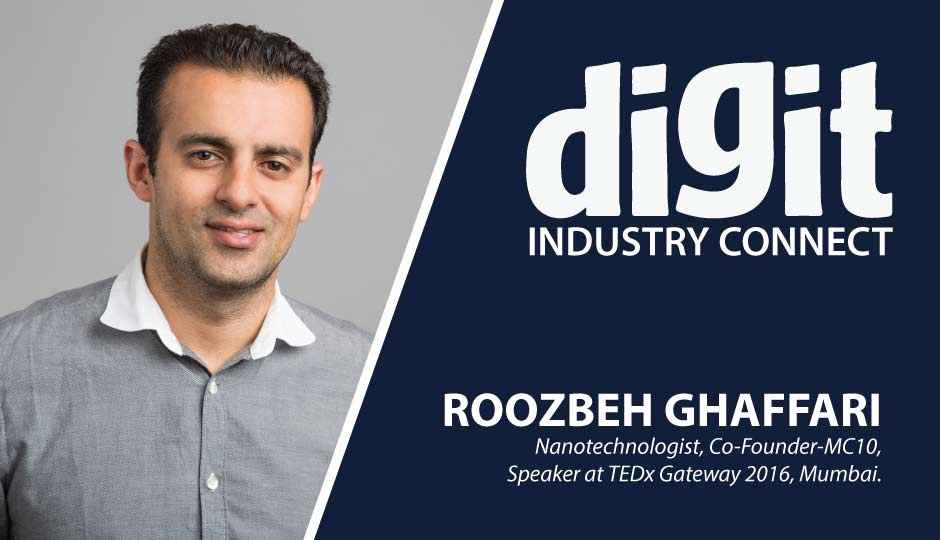Nanotechnology and the future of small things

Talking about the possibilities of nanotechnology with Roozbeh Ghaffari, Nanotechnologist and speaker at TEDx Gateway 2016, Mumbai.
Technology is, and has been, headed for the smaller for quite a long time. From smaller scale processor manufacturing methods increasing processor capabilities manifold, to tiny implants revolutionizing healthcare. And for the field of nanotechnology, this is nowhere near the end of it. In fact, it is just the beginning. We briefly discuss the field with Rooz Ghaffari, a nanotechnologist who founded MC10, a company that is focused on using nanotechnology to build patch-like sensors for the body that will change healthcare forever.
Digit: A brilliant example of how technology can help human health is the work that your company is doing. How is nanotechnology poised to help change human health for the better?
Roozbeh: Nanotechnology has spurred advances across many industries including clean energy to drug delivery. New technologies at the intersection of biology and soft electronics are poised to advance human health. Semiconductors are typically brittle and rigid, but once they are thinned and oriented down to the micro- and nanoscales, they become extremely soft and bendable. These unique mechanical properties of silicon nanomembranes and other thin-film electronics underscore the enormous potential of nanotechnology to play a role in healthcare. You can imagine designing devices and networks of biosensors based on these silicon nanomembranes and thin-films, interfacing with soft tissues and cells for diagnostic and therapeutic applications.
Digit: We've heard about quite a few applications of nanotechnology that the common person may not understand completely, and hence deem impossible. For example, nanoscale robots who can go inside our bodies and fight disease. If it can be available for the general population, how would something like that work?
Roozbeh: It is difficult to access tumor cells and their microenvironments using standard systemic drug delivery approaches. The promise of nano-robotics technologies is change that reality by delivering the right dosage of drug to the right place at the right time. The implications for having less targeted drug therapy with nanorobotic agents highlights the promise of nanotechnology to fight disease like cancer.
Digit: Do you think there is enough focus on solving actual human problems with technology, rather than just going smaller, faster etc?
Roozbeh: Yes. There are important health-related applications for nanotechnology. In drug delivery and therapeutic-based applications for example, nanoparticles are used to deliver molecularly targeted agents to tumors, thereby reducing toxicity side effects associated with systemic delivery of drugs. In these cases, nanoparticles engineered to provide high specificity are attractive as auto-immune disease targets and cancer therapy.
Digit: What do you think is the ultimate goal in nanotech? The 'holy grail’ of this discipline?
Roozbeh: There are a number very promising directions for nanotechnology in healthcare. By combining drug delivery with ultrathin biosensors and actuators, we can imagine novel classes of multifunctional wearable and implantable medical systems that close the loop between diagnostics and therapy. Closed loop systems that deliver targeted nanoparticles and measures the effects of the drug using ultrathin sensors would be a major breakthrough





